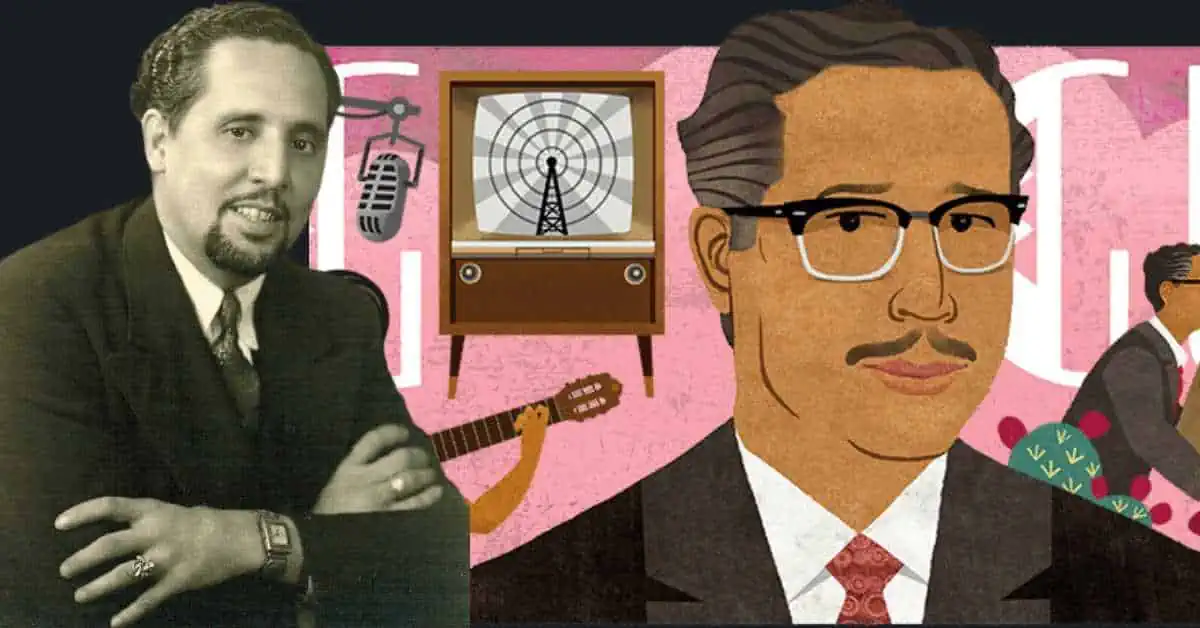Raoul A. Cortez, a Mexican-American media mogul, broadcaster, and network activist, is well known nowadays with a unique Google Doodle. He changed into a true trailblazer for Spanish-language media inside the america, paving the manner for Latino voices and lifestyle to be heard throughout the state. this newsletter explores the fantastic lifestyles and achievements of Raoul A. Cortez, highlighting his contributions to media, civil rights, and the Latino community.
Early Life and Influences
Born in 1905 in Xalapa, Veracruz, Mexico, Cortez turned into one of nine siblings. His father, curiously, owned a radio station in Nuevo Laredo, Mexico, which may have sparked a lifelong fascination with the electricity of broadcasting. As a young guy, Cortez’s entrepreneurial spirit shone through. He used his hustle to promote eggs at the streets, saving money to shop for airtime on neighborhood radio stations. This resourcefulness allowed him to supply a selection of programs, showcasing his skills for communique and enjoyment.
Building a Media Empire: KCOR Radio and Television
Cortez’s vision for a Spanish-language media powerhouse started out to take form in the 1930s and 40s. He started via proudly owning and working a theatrical organization, introducing outstanding Mexican and Latin American entertainers to American audiences. Recognizing the growing demand for Spanish-language content, Cortez began buying airtime on KMAC Radio in San Antonio. Here, he produced popular Spanish variety shows, captivating listeners with his innovative programming.
A Momentous Step: Founding KCOR
In 1944, Cortez took a monumental step by means of making use of for a license to release his personal radio station. This relentless pursuit culminated in 1946 with the start of KCOR-AM, the primary full-time Spanish-language radio station in the contiguous united states of america. This achievement marked a turning factor for Latino representation in media. KCOR became a beacon for the Latino network, supplying information, music, and amusement tailor-made to their cultural heritage. The station fast gained popularity, fostering a sense of community and cultural pleasure amongst its listeners.
Beyond Radio: The Rise of KCOR-TV
Cortez’s ambition wasn’t limited to radio. He envisioned a future where Spanish-language programming extended to television as well. Driven by using this intention, he released KCOR-tv in 1955. This pioneering act hooked up the first television station aimed completely on the Hispanic marketplace, and additionally held the distinction of being the first UHF station within the u.s.a. KCOR-tv proved to be every other groundbreaking achievement, offering a diverse variety of packages that resonated with Latino visitors.
Championing Latino Civil Rights
Raoul A. Cortez wasn’t only a media wealthy person; he became also a passionate recommend for Latino civil rights. He actively participated in the League of United Latin American residents (LULAC), a prominent Latino civil rights employer. appreciably. He served phrases as LULAC’s national president, leading the agency from 1948 to 1949. at some point of his tenure, Cortez played a essential position in the landmark Delgado v. Bastrop unbiased college District case, which helped to give up college segregation for Mexican people in Texas. Cortez’s influence extended beyond Texas.
A Legacy of Empowerment
Raoul A. Cortez surpassed away in 1971, leaving in the back of a first rate legacy. He is remembered as a visionary chief who revolutionized Spanish-language media inside the u.s.a.. KCOR, the radio and tv empire he built, continues to serve the Latino network, imparting a platform for their voices and testimonies. past media, Cortez’s advocacy for civil rights paved the manner for more equality for Latinos.
Conclusion
Raoul A. Cortez’s life and achievements are an proposal to all who strive to make a distinction. He’s a testomony to the strength of difficult paintings, imaginative and prescient, and a commitment to community. Raoul A.




